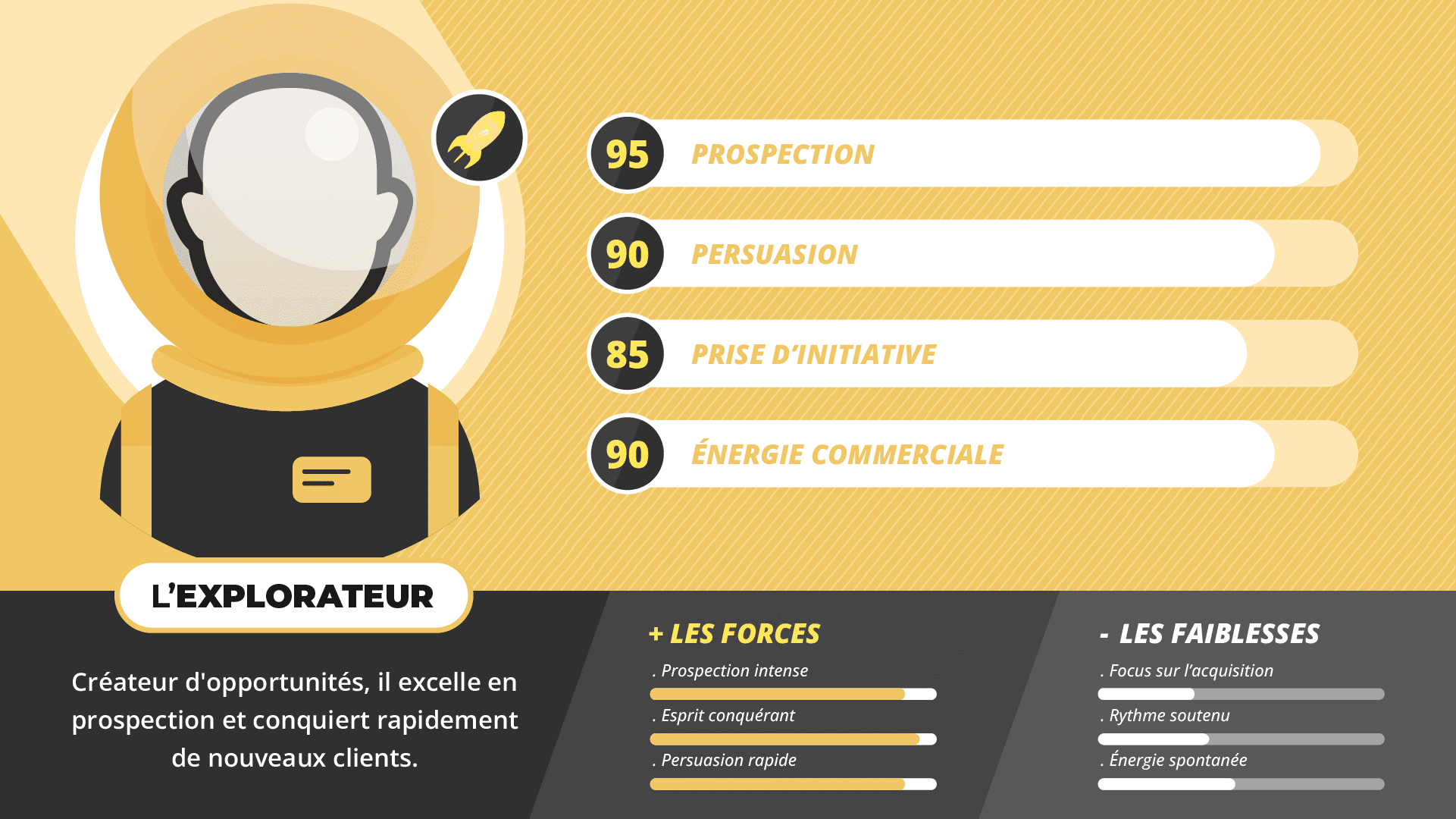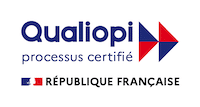Selon une étude réalisée par IKO system en 2012, 59% du temps de travail des commerciaux n’est pas consacré directement à la vente ! Un constat cinglant, qui fait apparaître le poids de nombreuses tâches annexes chronophages : réunions internes, tâches administratives, transports…
Redonner toute sa place à la vente au sein de l’activité des commerciaux est donc un enjeu de taille pour les Directeurs commerciaux et une nécessité pour l’entreprise en vue de développer ses profits et d’optimiser l’utilisation de ses ressources.
Alors comment changer ce constat a priori défavorable en opportunité ? Par exemple, en exploitant les gisements d’optimisation disponibles grâce au CRM !
Ces chiffres extraits de la très intéressante étude menée par IKO system [1] « Action commerciale: 66 statistiques et infographies » font apparaître les taches improductives ou excessivement chronophages qui pourrissent la vie des commerciaux :
Le temps perdu à ces tâches qui ne sont pas leur cœur de métier est-il une fatalité pour les commerciaux ? Fort heureusement, non !
Voici 4 façons dont le CRM peut vous aider :
- A améliorer la productivité de vos équipes commerciales (et donc leurs résultats)
- A sauver vos commerciaux de la crise de nerfs !
1. Optimiser les temps improductifs
Un premier axe de travail évident est l’optimisation de tous les temps improductifs !
Il s’agit par exemple de travailler dans le taxi, dans le métro, en attendant l’avion ou le train et donc de traiter tous ces temps improductifs comme des opportunités.
Pour ce faire, 2 possibilités sont offertes par une partie des solutions CRM :
-
- les applications mobiles
- la possibilité de travailler hors connexion
ZohoCRM, Sugar CRM, Salesforce, et Microsoft Dynamics, par exemple, mettent à disposition des applications mobiles s’enrichissant sur la base des paramétrages et personnalisations.
Les versions off-line des solutions CRM, quant à elles, se basent en général sur une intégration forte avec Outlook.
Autant d’opportunités pour vos commerciaux de saisir leurs activités, les verbatims issus de leurs entretiens, ou encore de paramétrer leurs tâches de suivi et de rappel dans des moments jusqu’alors improductifs.
2. Enrichir les données client / lead
L’ensemble des solutions CRM facilite l’enrichissement des données clients, de différentes façons :
-
- en normalisant ces données (par exemple, définir et uniformiser le format d’adresse) pour faciliter leur utilisation (génération de rapports, paramétrage de campagnes marketing…)
- en contrôlant la cohérence de celles-ci par des fonctions de contrôle de l’existence des adresses ou des numéros de téléphone.
Deux innovations majeures poussent plus loin cette logique pour le BtB et le BtC :
La première est l’intégration complète de données issues de base de données externes spécialisées. Cela peut passer par l’utilisation d’interfaces dédiées (comme par exemple Zebaz qui fonctionne avec les solutions Salesforce, Microsoft Dynamics, Yellowbox, Easiware, Marketo, Eloqua ou Digatelo) ou par la mise à disposition de modules spécifiques : Data.com ou Amabis, par exemple, ont créé une solution CRM autour de leurs annuaires d’entreprises (la Data est donc leur premier cœur de métier, mais ces entreprises ont compris l’enjeu qu’il y avait à proposer directement la solution technique permettant de les exploiter). Nous pouvons aussi citer la solution 2I de B&C Technology, qui propose une vue unique client enrichie.
Dans les 2 cas, l’interfaçage permet un import automatique et simplifié des données, qui sont directement rattachées aux comptes existant dans la base (pas de création de doublons, grâce à un système de recherche par similitudes, avec taux d’équivalence). Les mises à jour d’informations se font automatiquement et en temps réel.
Cela permet de mettre à jour les données administratives (adresse, SIRET…) et qualificatives (activité, CA, effectif…), mais aussi d’enrichir les contacts : fonctions, organigrammes… avec des données riches à forte valeur ajoutée pour les commerciaux !
La seconde est l’intégration des réseaux sociaux professionnels ou personnels directement dans la fiche de contact sur le CRM. Cela permet de suivre l’actualité des contacts de façon centralisée dans l’outil sans se disperser et de gagner ainsi en pertinence dans les échanges (suivi de l’actualité de la personne et de son entreprise, connaissance de ces centres d’intérêts et identification de son réseaux de connaissance pour éventuelles mise en contact et recommandations).
IKO System, lui, propose des alertes intelligentes sur vos contacts prospects, clients ou concurrents pour augmenter la réactivité des équipes commerciales.
3- Qualifier et scorer les leads
Au-delà des solutions déjà évoquées d’intégration avec des bases externes qui facilitent la recherche des leads et l’import de données riches dans le CRM, l’innovation majeure de ces dernières années-est l’explosion des modules de Marketing automation.
Ces modules plus ou moins riches fonctionnellement (et plus ou moins onéreux) permettent de mettre en place des politiques de nurturing, c’est-à-dire de proposer des contenus personnalisés (messages, offres) et de favoriser les interactions avec des leads identifiés (sur la base de scénarii Inbound Marketing) aux travers de différents canaux.
Ce processus enrichit la base en données comportementales exploitables et permet à la fois :
-
- de nourrir l’intérêt d’un prospect pour votre entreprise/vos offres
- de développer et approfondir la relation avec lui dans le temps
- d’identifier ses centres d’intérêt et ses habitudes (données comportementales)
- de l’accompagner dans la maturation de son projet et vers la prise de décision d’achat
- d’établir un scoring des leads sur la base des différentes interactions pour identifier les prospects chauds et les livrer au bon moment aux commerciaux
Ce canal marketing alimente donc in fine les leads disponibles pour les commerciaux qui disposent alors d’une base de contacts qualifiés avec un historique d’interactions. La liste des solutions est longue et l’offre est variée : Marketo, Eloqua, Pardot, Exact Target, Silver Pop, InfusionSoft, Koban, Act-On, SalesFusion, Click Dimenson….
4- Partager la connaissance et travailler en collaboration
Comme souvent cette innovation vient de chez Salesforce, innovation reprise, complétée et adaptée par la majorité des solutions CRM du marché.
Il s’agit de considérer chaque entité comme une page Facebook : un compte, un contact, une opportunité…. Ce qui peut sembler anecdotique à première vue permet surtout de stocker des données non structurées sur des comptes et contacts au lieu de les partager par email, et ainsi ne pas perdre d’information et de permettre à un nouvel arrivant d’intégrer la connaissance client au-delà des chiffres.
On entend par donnée non structurée : les verbatims d’entretiens, les organigrammes, les données relatives au marché du client et à ses offres (dans un contexte BtoB)… C’est-à-dire les données qui n’entrent pas dans des « champs dédiés » uniformisés et ne peuvent pas être importées automatiquement.
En permettant de les stocker et de les afficher sur la page dédiée au compte ou au contact, le CRM répond à plusieurs nécessités :
-
- Conserver la trace de ces informations et archiver cette connaissance qui relève de la Business Intelligence et revêt une forte valeur ajoutée dans le process commercial.
- La partager, afin que différents acteurs puissent contribuer à l’alimenter et à l’enrichir (un membre du service client ou un responsable projet peut glaner des informations clés sur les décisionnaires ou les projets du client au cours de ses échanges avec lui, qui auront une valeur importante aux yeux du commercial)
- L’ « historiser » : lier les informations riches ainsi obtenues à l’historique des interactions entre l’entreprise et le client, et permettre ainsi à tout interlocuteur reprenant le dossier de se mettre rapidement au courant de ces informations et de tenir compte de l’antériorité du client
La possibilité de s’abonner à des « flux » pour suivre le « fil d’actualité » d’un contact ou d’un compte peut permettre au manager de piloter l’activité de ses commerciaux, au commercial de suivre l’actualité de son client…ou à plusieurs membres d’une équipe de travailler ensemble (commerciaux travaillant ensemble sur un même compte, équipes commerciale + marketing + service client).
Cela évite également un écueil dramatique souvent rencontré dans les équipes en l’absence d’utilisation d’un CRM : la déperdition pure et simple des informations, ou leur maîtrise par une seule personne (susceptible de quitter l’entreprise).
Le CRM est donc une véritable mine d’or pour l’optimisation de la force commerciale et le développement d’une logique plus collaborative au sein de votre entreprise… A condition de bien le choisir et qu’il soit réellement utilisé ! Deux éléments essentiels sur lesquels nous accompagnons quotidiennement des clients de toute taille issus de nombreux secteurs, comme par exemple :
-
- le domaine de la santé : BIOMNIS
- le secteur loisirs-évènementiel : STADE DE FRANCE
- l’industrie : GPN (Groupe Total), GEMALTO
- le domaine des services : GL Events, APICIL
Et vous, comment vos équipes utilisent-elles les outils CRM ? Quels bénéfices avez-vous observé et quelles difficultés avez-vous rencontré à la mise en place d’un tel outil ?
Pour en savoir plus sur les solutions CRM et vous aider dans vos projets, trouvez l’ensemble de nos méthodes et outils ici :
[1] http://go.iko-system.com/rs/ikosystemtrial2/images/eBook_statistiques_action_commerciale_2012.pdf






